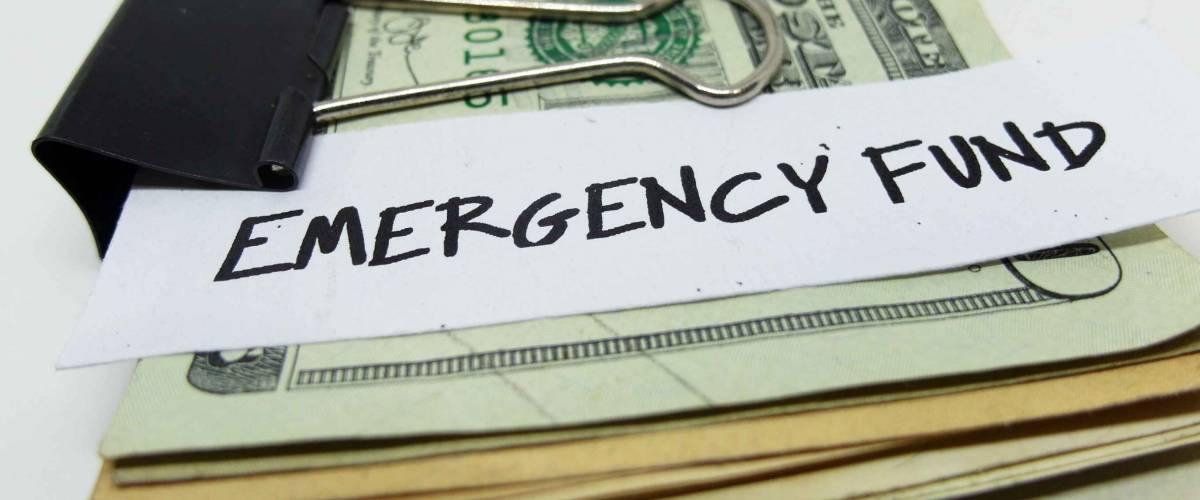In fact, Orman believes it’s not just a concern; it’s a crisis. Americans 65 and older spend on average $46,000 a year, according to the Bureau of Labor Statistics. But Americans' median savings is just $144,000, according to a Transamerica survey: that’s only enough to get you through about three years.
In her book, The Ultimate Retirement Guide for 50+, Orman outlines five lessons you can apply now to set yourself up for a blissful retirement later. Let's find out what they are.
Take a hard look at your finances

If you haven’t already, Orman says it’s time to buckle down and run through your budget with a fine-toothed comb.
Compare what you’re spending to what you’re saving. Trim the fat where you can and cut back on any unnecessary spending so you can allocate more to your retirement savings column.
Do you own a home and are you planning to stay in it through retirement? Then Orman says you need to come up with a plan now to ensure you’ll have your mortgage fully paid off before you retire.
Not sure how? A mortgage refi at a lower interest rate could save you hundreds of dollars a month and make it possible for you to pay down your home loan even sooner.
The richest 1% use an advisor. Do you?
Wealthy people know that having money is not the same as being good with money. WiserAdvisor can help you shape your financial future and connect with expert guidance . A trusted advisor helps you make smart choices about investments, retirement savings, and tax planning.
Try NowDownsize your home

You may have plenty of sentimental reasons to want to stay in your current home, but if it’s more space than you need and you can make money off of it, you may want to consider selling now.
Not waiting until you have to sell the house makes sense, Orman says, because if you invest the profits now, you’ll accrue much more interest than if you waited another 10 or 15 years.
“I don’t want you to wait till you’re 60 or 70 to sell this home,” she says. “I want you to downsize right now, so that you can start saving more money right now.”
While some may hesitate to part with their family homes, a smaller space is easier to clean, cheaper to run, will cost you less in homeowners insurance and will be more accessible as you age.
Beef up your emergency fund

Financial experts typically recommend you have an emergency fund of at least three to six months’ worth of living expenses, Orman actually recommends you make that two or three years.
Yes, three years’ worth of expenses in an emergency fund. Her reasoning is that if the market ever takes a downturn, you’re not going to want to be withdrawing from your retirement accounts until it bounces back.
With a substantial emergency fund, ideally in a high-yield savings account, you’ll be able to get by until it’s once again safe to take out funds from your retirement account.
Our savings goal calculator can help you visualize your progress as you work towards this goal.
AI-powered scams are surging—protect yourself now!
The average American gets 2 scam calls and 3 scam texts every week. With AI making scams harder to spot, cybercriminals stole $12.5B in 2023 alone. Don’t be their next victim—get Norton 360 Deluxe for powerful protection against threats. Stay safe today!
Protect yourself nowInvest in a Roth IRA

To avoid paying tax when you take money out of your retirement account, Orman recommends you go for a Roth IRA account.
“Later on in life, you want to be able to take that money out tax-free,” she explains.
Because your contributions to a Roth account are made after tax, you won’t have to deal with deductions when you withdraw. Traditional IRAs, on the other hand, aren’t taxed when you make contributions, so you end up paying later.
However, the IRS does set limits on how much you can contribute and who can contribute. You’ll need to have an adjusted gross income under $139,000 or $206,000 for married or joint filers.
Update your investment portfolio

Taking a “set it and forget it” approach to your investment portfolio rarely pays off. You have to regularly revisit your portfolio and make sure it’s still in line with your financial goals and timelines.
Check in with your financial advisor to ensure the balance you’ve got of cash, stocks and bonds is the right amount for your retirement goals.
Orman recommends either stocks or exchange-traded funds (ETFs) that pay dividends. So even if the market sees a downturn, your investments will still provide you some income.
“If you happen to hit a patch where the market starts to go down, you want these stocks to still provide income for you,” she says.
The moral of the story

When it comes down to it, the greatest threat to your comfort in retirement is not the stock market, how much you have saved or exorbitant spending — it’s you.
Orman says it’s normal to make a few missteps along the way, but if you want to retire comfortably one day, it’s time to get learning. Whether you do the research yourself or work with a professional financial advisor, the more financial education you seek out, the less likely you are to mess up.
“The biggest mistake you will ever make in your financial life are the mistakes you don’t even know that you are making,” Orman said.
Meet your retirement goals effortlessly
The road to retirement may seem long, but with Advisor, you can find a trusted partner to guide you every step of the way
Advisor matches you with vetted financial advisors that offer personalized advice to help you to make the right choices, invest wisely, and secure the retirement you've always dreamed of. Start planning early, and get your retirement mapped out today.







